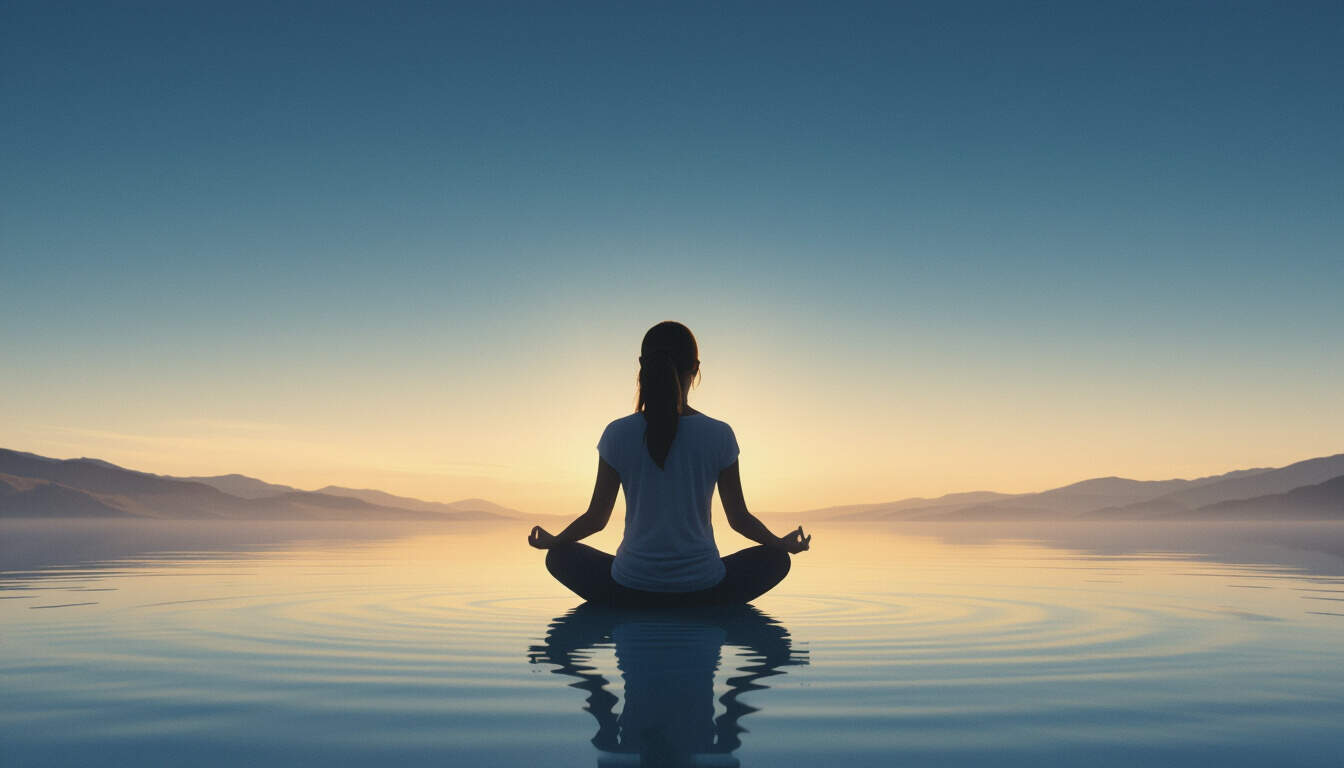Meditation and Circadian Rhythms for Daily Balance
 by Max Miller
by Max Miller
Explore how meditation supports circadian rhythms to promote daily balance, enhancing health and productivity through simple practices. Learn effective techniques to integrate into routines for better well-being and focus.

Circadian rhythms play a key role in our body's internal clock, influencing sleep, energy, and overall health. These natural cycles respond to light and darkness, helping regulate daily functions. Meditation offers a way to support these rhythms by promoting relaxation and mental clarity.
The Basics of Circadian Rhythms
Circadian rhythms are biological processes that follow a roughly 24-hour cycle. They control when we feel awake or tired, affecting hormone levels and body temperature. For instance, light exposure in the morning helps signal the start of the day, while darkness prepares the body for rest. Disruptions to these patterns can lead to issues like fatigue or poor concentration.
Maintaining circadian rhythms involves consistent routines, such as regular sleep times. When aligned properly, individuals often report improved mood and vitality. Research shows that these cycles connect deeply with our well-being, making them essential for long-term health.
How Meditation Fits In
Meditation involves focused breathing and mindfulness, which can calm the mind and reduce stress. By practicing regularly, people may find it easier to synchronize their internal clock with external cues like daylight. For example, a short session in the morning can set a positive tone for the day ahead.
This practice aids in resetting the body's natural timing by lowering cortisol levels, a hormone linked to alertness. Over time, consistent meditation helps build habits that support steady energy throughout the day. Many find that even 10 minutes of quiet reflection makes a difference in their daily flow.
Practical Tips for Daily Tuning
To incorporate meditation into your routine, start with simple steps. Begin by setting aside a specific time each day, such as after waking or before bed. Find a quiet spot and sit comfortably, focusing on your breath or a calming image.
One effective method is guided meditation using apps or audio. This can help beginners stay engaged without feeling overwhelmed. Aim for sessions that last 5 to 20 minutes, gradually increasing as you become more comfortable.
For better results, combine meditation with light exposure. For instance, practice outdoors during daylight to reinforce your body's clock. Track your progress by noting changes in sleep quality or focus levels over weeks.
Remember to be patient with yourself. Building new habits takes time, and small adjustments can lead to significant improvements in balance.
Effects on Health and Productivity
Regular meditation can enhance health by improving sleep patterns and reducing inflammation. Better rest means more energy for daily tasks, allowing for clearer thinking and fewer errors at work. People who meditate often experience fewer headaches and stronger immune responses.
In terms of productivity, this practice sharpens focus and decision-making. By clearing mental clutter, individuals can tackle challenges with greater ease. Studies indicate that those who maintain balanced routines are less likely to feel burned out.
Health enthusiasts might appreciate how meditation boosts emotional stability, leading to better relationships and personal growth. Busy professionals can use it to manage stress, ensuring they perform at their best without exhaustion.
Real-Life Applications
Consider a typical day: waking up and starting with meditation can help align your energy with the morning light. Throughout the day, brief pauses for mindfulness keep you centered, preventing afternoon slumps.
For anyone seeking better routines, experimenting with different styles like body scan or loving-kindness meditation can be beneficial. These approaches encourage self-awareness, which supports overall balance.
The key is consistency. Over time, these practices become second nature, fostering a sense of harmony in life.
Final Thoughts
Incorporating meditation into your life offers a pathway to stronger circadian rhythms and enhanced daily balance. By prioritizing these elements, you can achieve greater health and productivity. Whether you are new to this or experienced, the benefits extend far, creating a foundation for sustained well-being.
